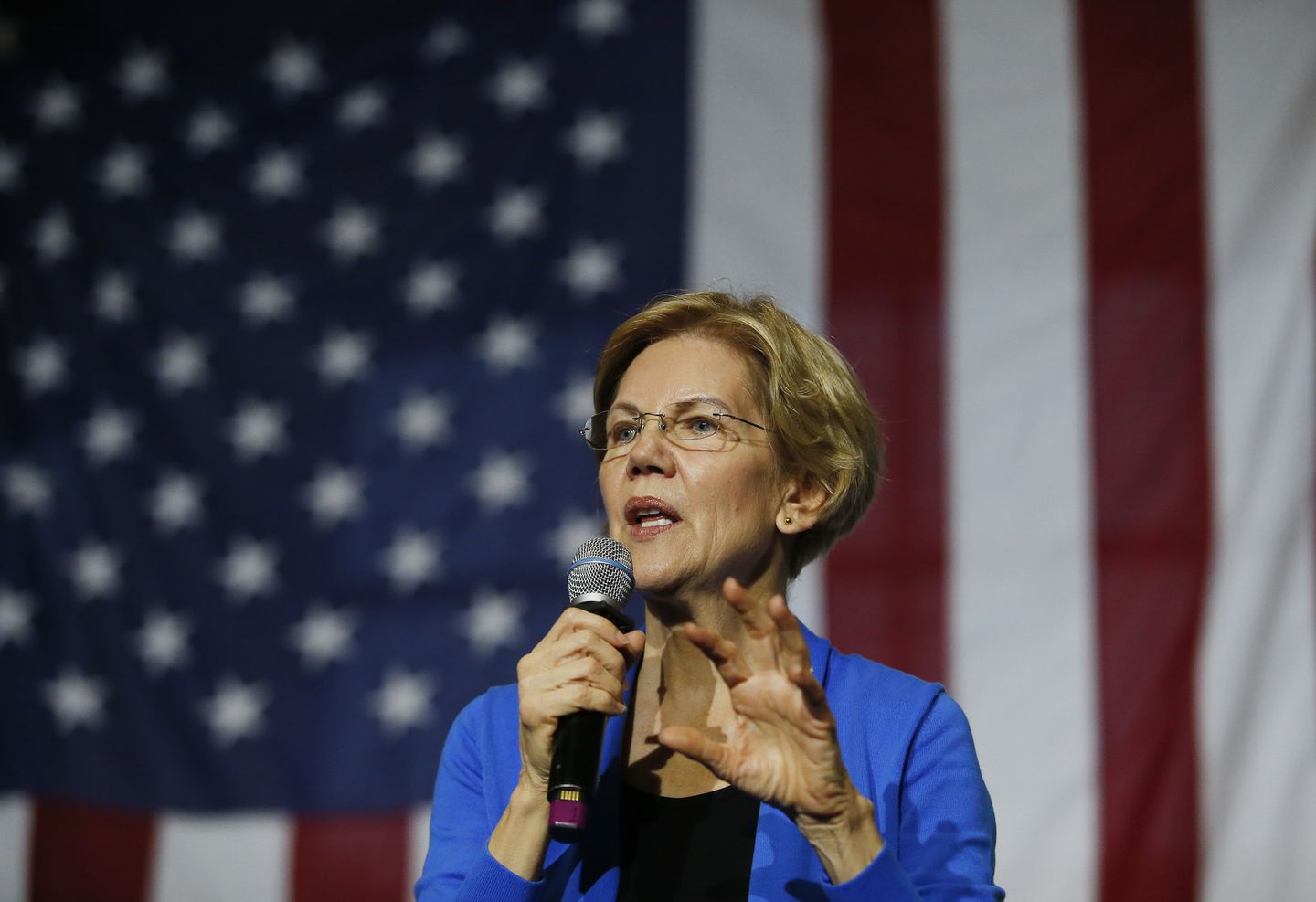Elizabeth Warren, a US Senator from Massachusetts, will suspend her campaign for the Democratic presidential nomination, she told staff on Thursday morning [March 5, 2020] , bringing to a close a once-promising candidacy that ultimately appeared to peak too early.
“I know that when we set out, this was not the call you ever wanted to hear,” Warren said according to remarks released by her campaign. ‘It is not the call I ever wanted to make. But I refuse to let disappointment blind me – or you – to what we’ve accomplished.”
The senator emphasized the grassroots nature of her run, despite the fact that her network of support failed to deliver her a win in any single primary held so far this cycle.
“We have shown that a woman can stand up, hold her ground, and stay true to herself – no matter what,” Warren said.
After a series of disappointing losses in early voting primary states—including a humiliating third-place finish in her home state—Warren was effectively squeezed out of contention by the rise of progressive Sen. Bernie Sanders of Vermont and the decision by more moderate rivals to coalesce in support of former Vice President Joe Biden.
Warren’s decision came after a Super Tuesday where the summertime frontrunner earned only a handful of delegates in the 14 primaries across the country, finishing in a distant fourth in many contests. Warren, whose campaign was founded on the contention that she had plan for everything, saw no plan going forward that could win her the nomination.
Though she entered the fall hot on Biden’s heels in national polls, a densely packed field of Democratic candidates splintering every supposed “lane” in the party and the rising force of Sanders as the champion of progressive causes for which Warren herself advocated lead to a series of also-ran finishes in Iowa, New Hampshire, Nevada and South Carolina.
Warren never finished above third place in any nominating contest of the Democratic primary season, and lost her own home state of Massachusetts to Biden and Sanders—in that order—on Tuesday.
Warren developed a ground game that was seen as the envy of the 2020 field in Iowa and New Hampshire. But the time and investment Warren’s campaign put into those contests proved to pay off little in the way of dividends. Her fourth place finish in New Hampshire was a staggering blow to her 2020 effort, proving to be an outlier of the state’s penchant to reward candidates from neighboring states.
Warren’s closing “unity candidate” argument had weakened in recent days as fellow candidates, including former South Bend Mayor Pete Buttigieg and Sen. Amy Klobuchar of Minnesota, dropped out to support Biden as the best candidate to win against Sanders and, in turn, defeat President Donald Trump in the general election. With more left-wing voters, whose ire Warren had earned after accusing Sanders of telling her that a woman couldn’t win the White House in 2020, lining up behind Sanders after ahead of Super Tuesday, Warren’s much-vaunted—and extremely expensive—ground game faltered.
In a March 1 memo to staff, Warren campaign manager Roger Lau said the senator had “seen a record-breaking surge of grassroots support,” in February. Lau maintained that Super Tuesday would show Warren was one of the remaining candidates with “a viable path,” to become the Democratic nominee.
But on the morning after Super Tuesday, a followup memo was much less surefooted.
“Last night, we fell short of the viability goals and projections, and we are disappointed in the results,” Lau told staff, adding that Warren was “going to take some time right now to think through the right way to continue this fight.”
“This decision is in her hands, and it’s important that she has the time and space to consider what comes next.”
February proved to be a last ditch attempt by the senator as she grew more aggressive towards her Democratic rivals. A Nevada debate performance where she skewered former New York City Mayor Mike Bloomberg helped give her a cash windfall last month.
But less than a day later, Warren drew some onlookers ire as she declined to dismiss a new super PAC created to support her struggling effort. Fighting corruption and getting big money out of politics had been a focus of Warren’s 2020 run.
Her change of tone towards the big money spending was so abrupt that her website still read that Warren “rejects the help of Super PACs and would disavow any Super PAC formed to support her in the Democratic primary,” on the same day she warmed to the committee’s spending on her behalf.
Still, as the sole woman remaining in serious contention after Klobuchar dropped out on the eve of Super Tuesday, Warren, supporters felt, may have partially fallen victim to post-2016 flashbacks by voters who supported her policies and candidacy, but feared that she was too vulnerable to Trump’s long-practiced attacks to win the presidency.
At a get-out-the-vote event in Columbia, South Carolina—the morning before Warren finished a distant fifth in the primary—many Warren supporters already seemed resigned to the likelihood that the Massachusetts senator would not be the Democratic nominee. As they reflected on what had gone wrong, one fact got mentioned repeatedly.
“She’s a woman,” said Jennifer Kemp, a real estate manager from Columbia. “I think it’s that simple… History repeats itself.”
The sexism those voters saw at work during Hillary Clinton’s 2016 run had not abated four years later, handicapping the Massachusetts senator who had been the strongest female candidate in the 2020 field.
“It’s pretty disappointing,” said Meaghan Paul, a 30-year old speech therapist from Columbia, said of Warren’s struggle. “A lot of it has to do with the fact that she is a woman and fights hard. It’s worked against her.”
Hattip to Daily Beast







